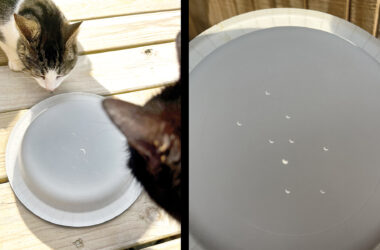I Corinthians 11:20-34
Throughout much of his first epistle to the church at Corinth, Paul identifies numerous shortcomings of believers and issues corrective instructions. In the text before us, Paul lets the church know that it was observing the Lord’s supper in a most inappropriate manner. Members were partaking of food from home and eating a meal. In some instances it was a meal fitting for a celebratory banquet (v. 21).
In verse 23, the Apostle states that he delivered instruction which he has received from the Lord. All Bible-believing Christians know that all scripture is given by the Holy Spirit who teaches us all things and brings the words of the Lord Jesus into remembrance (Jn. 14:26). Paul’s teaching concerning the Lord’s supper was revealed to Paul directly from the Lord. It is by the Holy Spirit that we know the intimacy of the Lord’s supper. Failure to do as Jesus instructed Paul is an act of utter disregard of His love.
The bread which we eat is symbolic of His body which was broken for us (v. 24). In eating the bread and drinking of the cup, we are engaging in a physical act which testifies of our acceptance of the Father’s gift (John 3:16).
The cup which we drink is symbolic of the new covenant —new relationship— which relationship is made possible by His shed blood (v. 25). Again, we are engaging in a physical act which is a testimony. In drinking the cup, we declare the new covenant — a new relationship with God the Father in which the Son sits at His right hand and intercedes for us. Declaration establishes the intent of the declarer. With it, we solemnly acknowledge that all access to the Father is through the Son.
We are to partake of both the bread and the cup in remembrance of Him. While the eating of the bread and drinking of the cup are symbolic, His broken body and shed blood are not. They are literal realities which satisfied our sin debt and made way for our new relationship with God the Father.
In verse 26, the Apostle states that eating of the bread and drinking of the cup declares the Lord’s death until He returns. In Matthew 26:29, the Lord informed His disciples that He would not drink of the fruit of the vine again until He drank it new with them in “My Father’s kingdom.” When we partake of the Lord’s supper in remembrance of Him and the things which He taught, we look to the day when He shall come and drink.
This is what Paul received of the Lord and it is what he delivered to the Corinthians that they should do. Many in the church at Corinth were not eating of the bread and drinking of the cup in this manner. They were not doing this in remembrance of Him. They were not testifying of His death for their sins, His presence with the Father as their intercessor, and of His promise come again. The manner in which they observed the Lord’s supper made light of what He has done, is doing and shall do. They were guilty of dishonoring the Lord. They were guilty of the body and blood of Christ Jesus.
All believers are called to place God first, others second and self last. When we fail to do as we know to do, we dishonor His body and His blood. Our testimony is lost. Because we fail, we need heed Paul’s message to the church at Corinth. We must judge ourselves such that we not be judged and found unworthy (see v. 31).
In the church at Corinth, the Lord’s supper had become a time to fill one’s belly with bread and to drink wine in excess (see v. 21). Believers are instructed to do this [eating and drinking] in remembrance of Jesus. The failure of the church to judge themselves resulted in God’s judgment. Consequently, many were sick and weak and numerous ones had perished (v. 30).
In verse 32, Paul states, “But when we are judged . . .” Being judged is not an “if”; it is a certainty. The Lord desires that we should judge ourselves and right our ways. If we fail to judge ourselves, the Lord will do the judging. His judgment is right and fair. His judgment is merciful. Without His chastening, one is condemned with the world and all that is in the world.
In his closing words concerning the Lord’s supper, the Apostle urges the brethren to wait for one another before partaking. In verse 34, he instructs them to eat at home such that physical hunger does not cause them to come together in condemnation. Remembrance of the Lord and filling one’s stomach are incompatible. The Lord did not give Himself for us such that we may fill our stomachs. He died that men might know of the Father’s loving grace.
In eating and drinking in remembrance of Him, we testify of the past (He died for us); the present (He intercedes for us); and the future (He shall come again). We know that He has reached out to us and desires that all should come to Him in repentance. Let us do that which we know is right to do.



